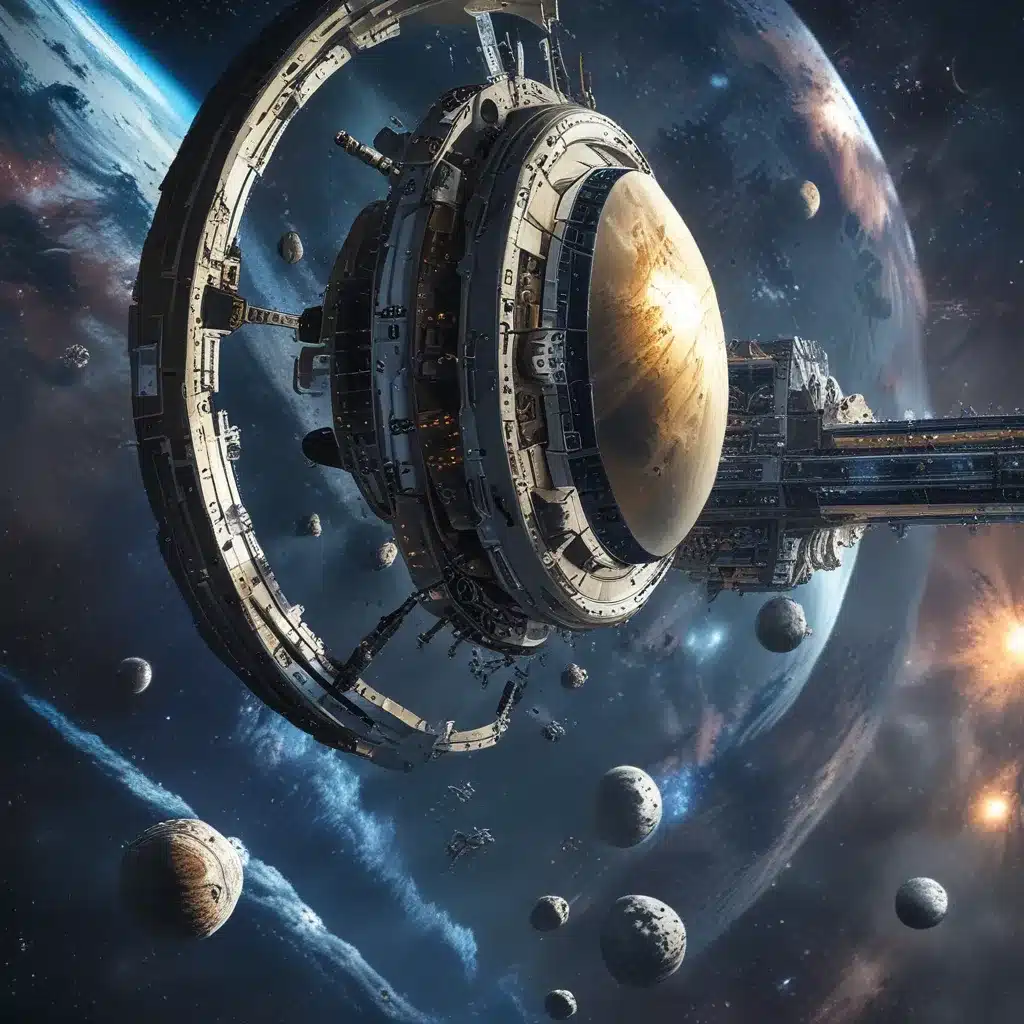
The Allure of a Second Chance
As I gaze out my window, I can’t help but feel a twinge of unease about the state of our world. Natural disasters, political tensions, and technological advancements that bring with them new threats – it’s enough to make even the most optimistic among us wonder if humanity is headed for a catastrophic end. But what if I told you there’s a plan to ensure our survival, a backup option that could give us a second chance at thriving? That’s where the idea of colonizing space comes in.
It’s a captivating notion, isn’t it? The prospect of establishing human settlements beyond the confines of our fragile planet, a modern-day Noah’s Ark that could safeguard the future of our species. Elon Musk, the visionary behind SpaceX, and Jeff Bezos, with his Blue Origin venture, have both voiced their concerns about Earth’s limitations and the urgent need to expand our horizons.
As Vox reports, Musk founded SpaceX out of frustration with NASA’s slow progress in reaching Mars, while Bezos envisions using the resources of space to help solve our problems here on Earth. Both men seem to believe that a backup plan beyond our fragile home is essential for humanity’s long-term survival.
The Challenges of Colonizing Space
But is this really a viable solution? After all, as the experts at Vox point out, the environments of Mars and the Moon are far more hostile to human life than even the most extreme conditions on Earth. Cosmologist Martin Rees of Cambridge University has bluntly stated, “I think that’s a dangerous delusion because Mars will be a more hostile environment than the top of Everest or the South Pole, and dealing with climate change here on Earth is far more important than terraforming Mars.”
Reddit discussions also highlight the significant challenges of establishing self-sustaining colonies in space, from the sheer cost and timescale involved to the technical hurdles that even the most innovative minds have yet to overcome.
Weighing the Risks and Rewards
So, is space colonization a worthwhile pursuit, or is it just a pipe dream that diverts resources from more pressing issues here on Earth? Nick Beckstead, a program officer at the Open Philanthropy Project, offers a nuanced perspective. While he acknowledges the potential benefits of a thriving Mars colony, he’s skeptical about the feasibility of achieving that goal in a timeframe that could meaningfully impact our species’ survival.
“It’s going to be very difficult, very expensive, and probably take a long time,” Beckstead says. “Not a long time as in decades, which might barely be enough time to get us to Mars in the first place, but a long time as in centuries.”
Beckstead raises a valid point – for a space colony to provide any meaningful protection for humanity, we’d need to maintain our technological and social cohesion for centuries, a daunting task given the myriad risks we face, from climate change to advanced artificial intelligence.
Exploring Alternative Backup Plans
So, if space colonization isn’t the silver bullet we’ve been hoping for, what other options are on the table? Beckstead suggests exploring more cost-effective and time-efficient approaches, such as establishing secure bunkers in locations like New Zealand, which are less likely to be affected by global catastrophes.
As the SOLA Network article points out, our deep-seated desire to “begin anew” is a universal human longing, one that manifests in everything from our personal lives to our loftiest ambitions. But perhaps the true path to lasting peace and security lies not in escaping to another planet, but in addressing the root causes of our global challenges right here on Earth.
The Importance of Pragmatism and Coordination
At the end of the day, the experts seem to agree that while space exploration is an exciting endeavor, it’s not the panacea for humanity’s problems. Instead, they argue that we should be focusing our resources and efforts on more immediate, tangible solutions – from studying the climate effects of nuclear war to exploring international cooperation on AI governance.
It’s a sobering realization, but one that ultimately reflects a pragmatic, well-reasoned approach to safeguarding our future. After all, as the SOLA Network article reminds us, true transformation doesn’t come from changing our physical location, but from the renewal of our hearts and minds.
So, while the idea of colonizing space may capture our imagination, the real work of ensuring humanity’s survival lies in confronting the challenges we face head-on, here on Earth. It’s a daunting task, to be sure, but one that I believe we’re more than capable of tackling – with a healthy dose of realism, coordination, and a steadfast commitment to a brighter tomorrow.












